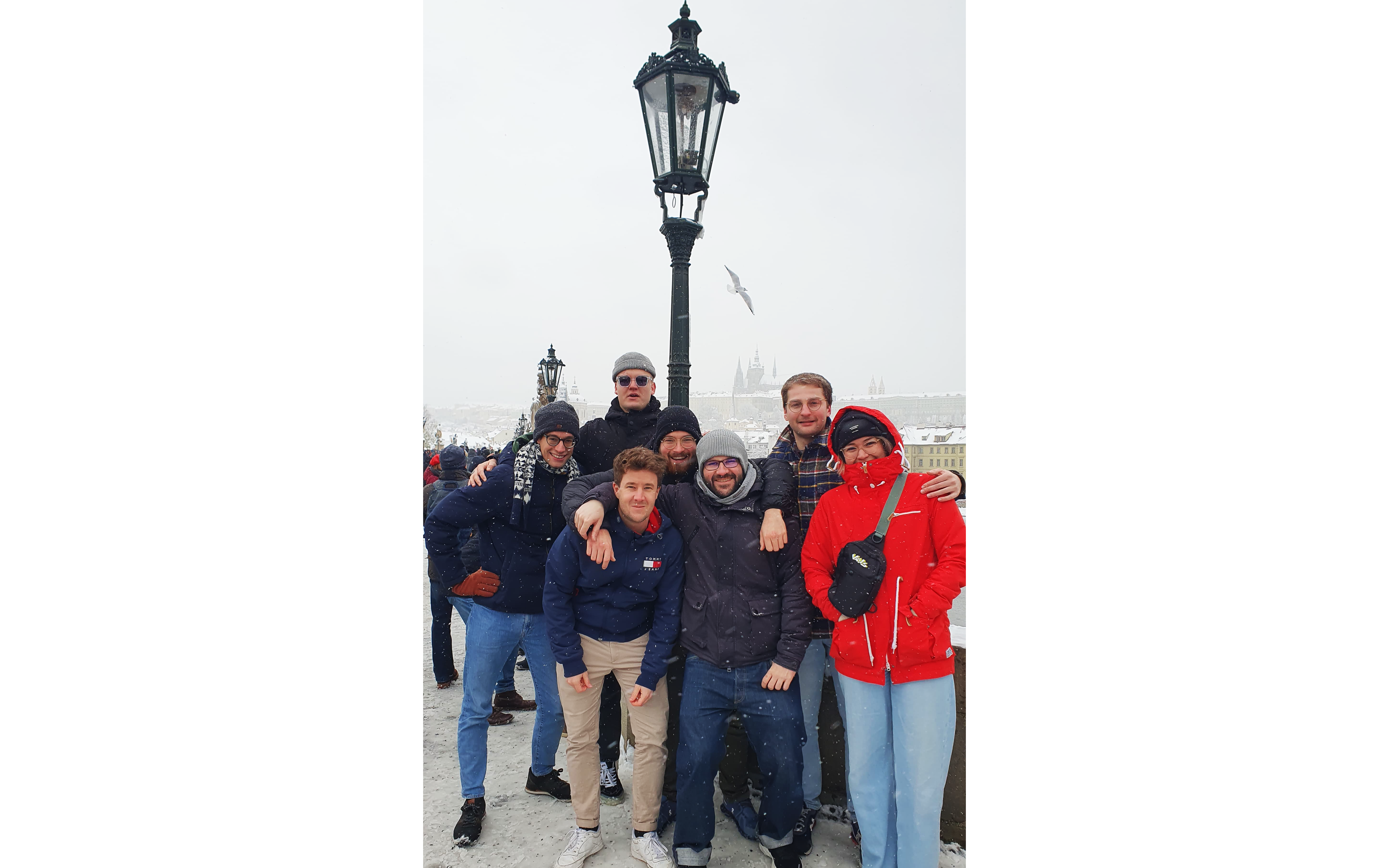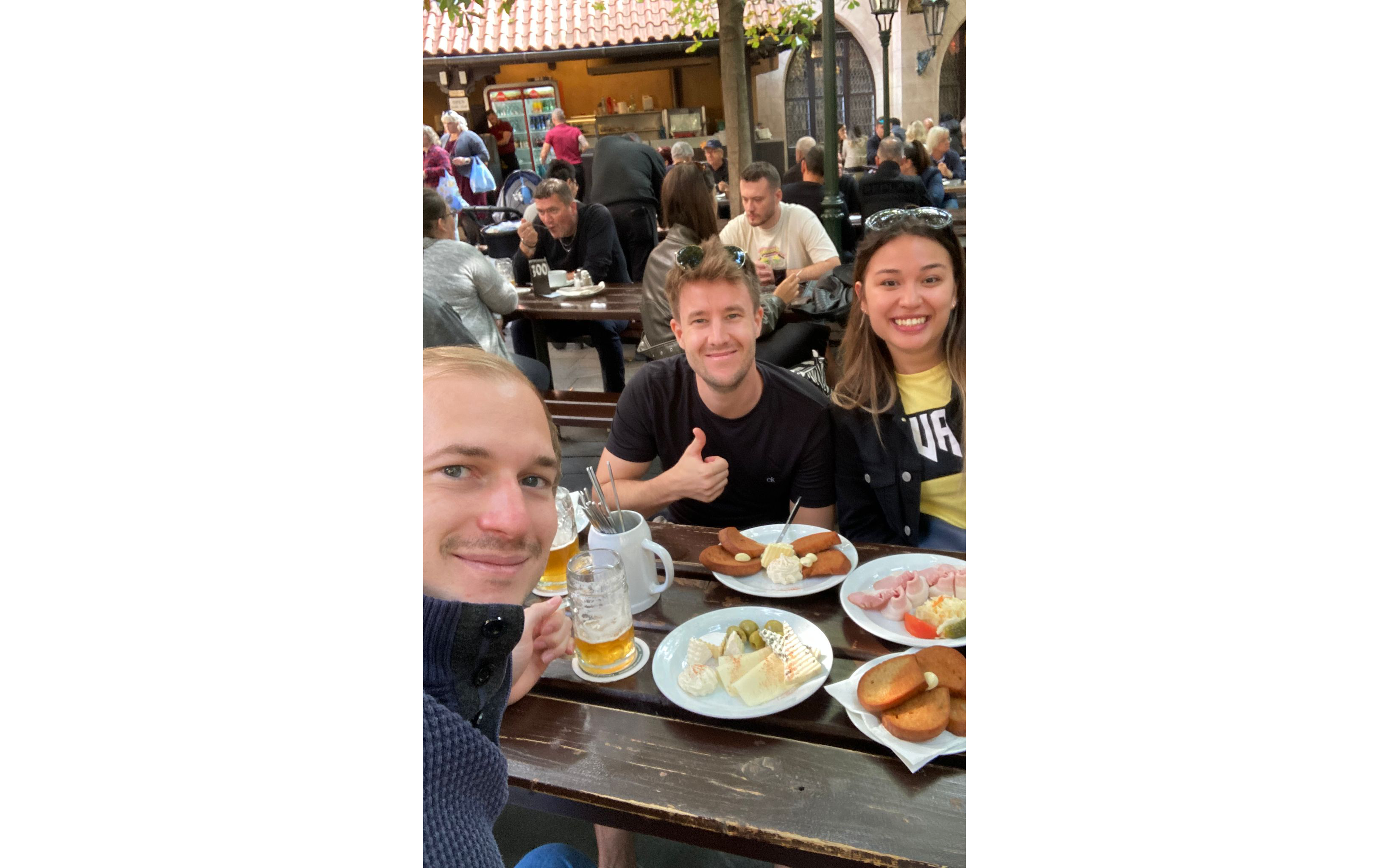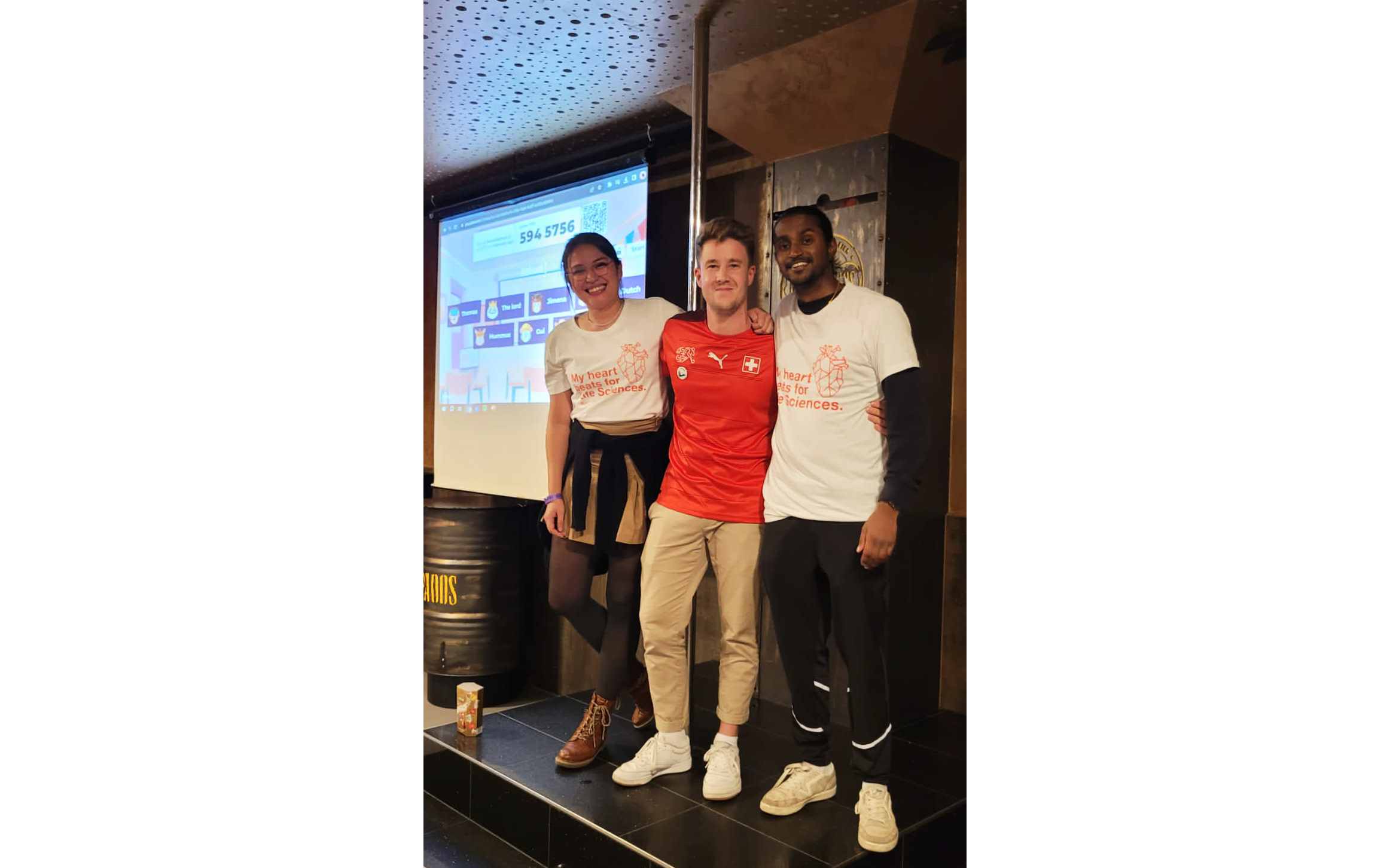Philip Giller
Philip took the opportunity to do a double degree in Prague and spent one additional semester at the University of Chemistry and Technology
Field of study: MSc in Life Sciences, specialisation Biotechnology
Stay abroad: Double Degree
Host institution: University of Chemistry and Technology
Semester: Autumn 2023
What made you decide, what motivated you to go abroad?
I have always aspired to study abroad, and pursuing a Double Degree provided the ideal opportunity for this. Studying abroad represents more than just being away from my home university; it's an enriching experience in a diverse environment with new people. Embracing this challenge was a chance to immerse myself in a different academic culture and broaden my perspectives at another university.
Why did you choose your host institution/country?
Prague is renowned for its vibrant student life and excellent universities. The University of Chemistry and Technology (UCT) in particular offers a distinguished Biotechnology program. This was a key factor in my decision to study in Prague, a city I was already familiar with and admired for its beauty and cultural richness. Additionally, Prague's substantial Erasmus community, comprising students from around the globe, appealed to me. The opportunity to meet new people and expand my network both socially and professionally in such a diverse setting was particularly enticing.
What is your everyday life like?
During my time working on a laboratory project in Prague, my typical day was structured as follows: I would wake up at 8 AM and enjoy breakfast with my roommates from Switzerland and Germany. After breakfast, a 15-minute metro ride took me to the university. At the lab, I worked on a genetic engineering project involving E. coli cells. Around noon, I'd take a lunch break, often joining friends from the Erasmus group. Post-lunch, my schedule typically included 1 to 2 lectures. By 4 PM, I either headed home or met up with fellow Erasmus students for a drink, a walk through the city, or just to chat. Evenings were usually spent having dinner together or enjoying a beer. We also dedicated a significant amount of time to exploring and experiencing Prague's vibrant nightlife.
Tell us about your research and your research findings during your residency.
During my residency, I delved into the intricate processes of assembly and RNA packaging in the Tick-Borne Encephalitis Virus (TBEV). A significant part of my research was to identify the various RNA types present in TBEV particles. In this pursuit, we found that the TBEV C protein is capable of binding with a range of RNA molecules. This includes not only the virus's own RNA, known as vRNA, but also RNA from host cells. This discovery is pivotal as it underscores the crucial role of these bindings in the virus's replication cycle and potentially in the severity of the disease it causes.
Our approach involved isolating TBEV particles from infected cells and employing advanced RNA analysis techniques to scrutinize the RNA types within these particles. Another key aspect of our research was understanding the specificity with which TBEV recognizes and packages its RNA. This specificity is a determining factor in the effective replication of the virus. We observed that although TBEV interacts with various RNA types, it has evolved mechanisms to preferentially package its own vRNA.
The outcomes of this research contribute to a detailed understanding of the RNA types incorporated into TBEV, shedding light on their roles in viral replication and pathogenesis. This knowledge not only enhances our understanding of TBEV at the molecular level but also opens up new possibilities for developing targeted treatments against this virus.
What surprised you the most about your stay abroad?
I was pleasantly surprised by the warmth and friendliness I received from both the Czech locals and the Erasmus community. It was incredibly easy to meet new people from various countries, each bringing their own unique cultural and religious backgrounds. The experience of so many individuals from around the world coming together and having a fantastic time was truly remarkable. Additionally, I was struck by the challenge of learning the Czech language. Its uniqueness meant that, despite my efforts, I only managed to learn how to order a cold beer.
What tips would you give to future exchange students?
Planning your study abroad experience well in advance is essential. It's important to:
- Thoroughly research the city where you will be studying.
- Find suitable accommodation, such as apartments or student dormitories.
- Carefully select your subjects, as some can be quite challenging.
- Get out of your comfort zone and make as many new friends as possible.
- Most importantly, make sure to enjoy every day.
- Time flies when you're having a great time abroad, surrounded by wonderful people.
Is there anything else you would like to share?
Within our Erasmus community, we organized numerous excursions to various nearby cities. Our adventures included visits to Vienna, Budapest, Krakow, Munich, Brno, Karlovy Vary, and many other places during our study abroad. My advice is to use every free minute to explore as much as you can – these experiences will become cherished memories!
Additionally, we enjoyed a fantastic 5-day ski trip to Pec Pod Sněžkou, a renowned ski resort in the Czech Republic. It was an unforgettable time spent together, filled with fun and camaraderie.




